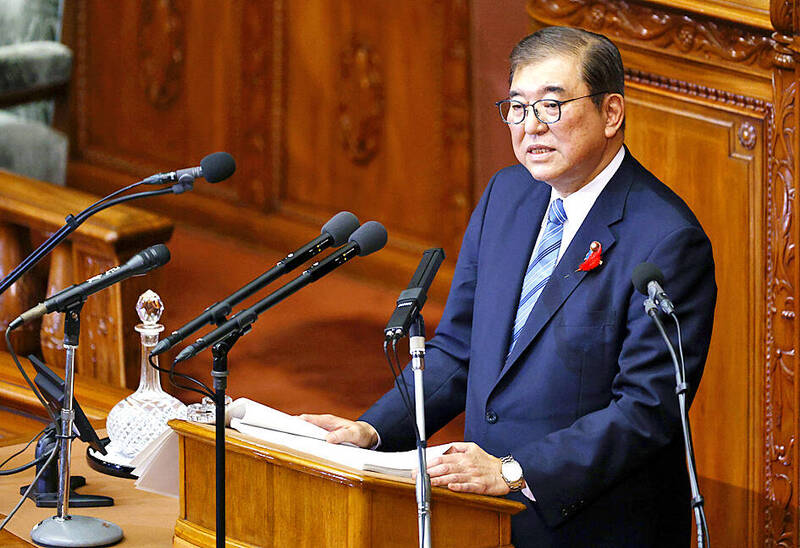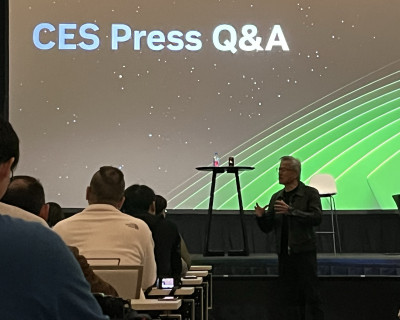《TAIPEI TIMES》East Asia could be next Ukraine, Japanese PM says

Japanese Prime Minister Shigeru Ishiba delivers a speech at the parliament in Tokyo yesterday. Photo: EPA-EFE
ASIAN NATO:Shigeru Ishiba, who backs creating a regional military alliance, said that that the security environment is ‘the most severe since the end of World War II’
AFP, TOKYO
Japanese Prime Minister Shigeru Ishiba yesterday warned in his first policy speech that “today’s Ukraine could be tomorrow’s East Asia,” while also dubbing the nation’s low birthrate a “quiet emergency.”
“Many fear that today’s Ukraine could be tomorrow’s East Asia. Why did deterrence not work in Ukraine?” Ishiba told lawmakers.
“Combined with the situation in the Middle East, the international community is becoming increasingly divided and confrontational,” the 67-year-old former Japanese minister of defense said.
Ishiba made no direct reference to China, but his nation’s relations with Beijing have deteriorated as it asserts its military presence around disputed territories in the region. Of particular concern is Taiwan.
Japan has also irked China with plans for a major increase in defense spending and by boosting security ties with the US and its allies, including the Philippines and South Korea.
A Chinese military aircraft in August staged the first confirmed incursion by China into Japanese airspace, followed weeks later by a Japanese warship sailing through the Taiwan Strait for the first time.
Ishiba has backed the creation of a regional military alliance along the lines of NATO, saying on Tuesday that the security environment in Asia is “the most severe since the end of World War II.”
Japan, like many developed nations, is facing a looming demographic crisis as its population ages and the birthrate stays stubbornly low.
The nation has the world’s oldest population after Monaco, according to the World Bank.
Last year, its birthrate — the average number of children a woman is expected to have in her life — stood at 1.2, well below the 2.1 needed to maintain the population.
Ishiba yesterday called the birthrate situation a “quiet emergency,” adding that the government would promote measures to support families such as flexible working hours.
Kishida was unpopular with voters because of a string of scandals and inflation squeezing earnings in the world’s fourth-biggest economy.
Ishiba wants to boost incomes through a new monetary stimulus package, as well as support for local governments and low-income households.
Within this decade, he said he wants to hike the average ¥1,500 (US$10.26) per hour, up nearly 43 percent from ¥1,050.
The yen surged on Friday last week after the Liberal Democratic Party (LDP) voted Ishiba its new leader, because he had broadly backed the Bank of Japan’s exit from its ultra-loose policies, but Ishiba late on Wednesday told reporters he did not think the environment was right for further interest rate hikes, sending the Japanese currency south.
Yesterday afternoon, US$1 bought ¥146.02, having slightly recovered from levels past ¥147 earlier this week.
Ishiba also weighed in on the dearth of eligible male heirs to the imperial throne.
Male-only succession rules mean the imperial family is facing extinction, with only one young heir: Emperor Naruhito’s 18-year-old nephew Prince Hisahito.
“Stable royal succession is extremely important. Stabilizing the number of members of the imperial family is a particularly urgent issue,” Ishiba told lawmakers, calling for a debate on the issue.
新聞來源:TAIPEI TIMES















